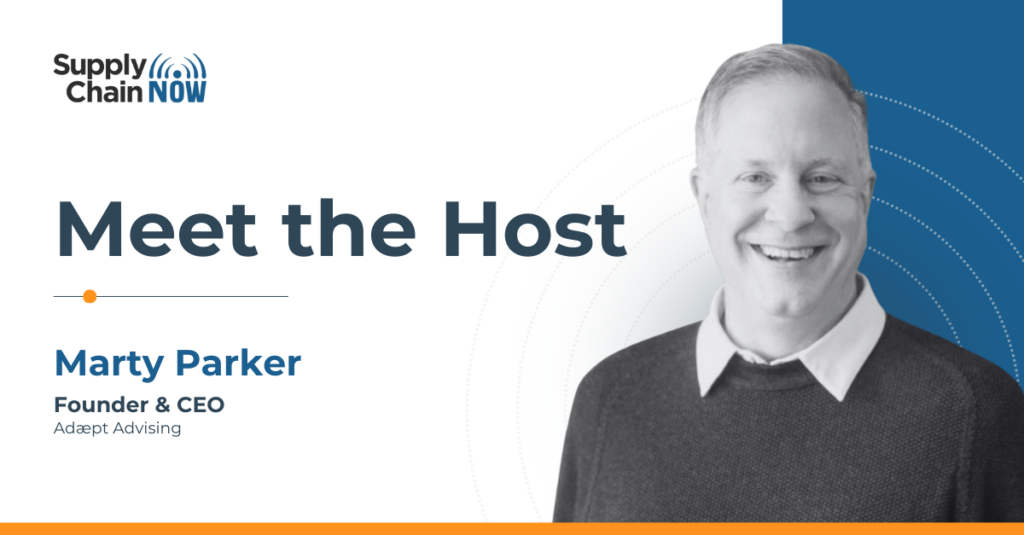
Eco-Friendly Innovations: How Sustainable Practices Are Reshaping Supply Chains
Scope 3 emissions reportedly account for more than 70% of businesses’ carbon footprints. That huge percentage gives an indication of just how critical supply chain sustainability efforts are to the planet.
Thankfully, a growing number of eco-friendly innovations are helping reshape global supply chains.
Supply Chain Sustainability: An Industry Imperative in a Changing World
It is becoming increasingly important for companies to accurately calculate their supply chain emissions and create an information-sharing ecosystem, according to Matthew Gardner, co-founder and managing partner of Sustainserv, a consulting firm that helps businesses implement sustainability strategies.
Gardner said accounting for supply chain-related greenhouse gas emissions includes such challenges as:
- Data gathering of “materials, manufacturing processes, activities of second- and third-tier suppliers, and overall data governance and quality.”
- Calculation methodology that “reflects the realities of raw material sourcing, product manufacturing, transportation and distribution, and other life-cycle impacts that may affect reported greenhouse gas totals.”
- Supplier relationships, which can be strained as a result of emissions assessments.
Businesses also need to keep in mind their relationships with consumers. PDI Technologies said 80% of U.S. consumers it surveyed were willing to pay more for sustainable products.
“Between these statistics and the regulatory conversations that are happening in our industry, there are more compelling reasons than ever for retailers and brands to understand and act upon consumer sentiment toward sustainable businesses,” Maryann Michela, PDI’s senior director, said, according to SupplyChainBrain.
Businesses Face Significant Challenges in Building Sustainable Supply Chains
The need for sustainable supply chains is becoming more urgent. Climate.gov said a U.S. Climate Science Special Report revealed that if “yearly emissions continue to increase rapidly, as they have since 2000, models project that by the end of this century, global temperature will be at least 5 degrees Fahrenheit warmer than the 1901-1960 average, and possibly as much as 10.2 degrees warmer.”
But saying you want a sustainable supply chain is a lot easier than actually implementing one. Roadblocks include:
Supply Chain Complexity
Modern supply chains can be highly complex, involving numerous suppliers, logistics providers, and partners across various geographies. This complexity makes it difficult to monitor and manage sustainability practices consistently throughout the entire supply chain.
Data and Transparency Issues
Sustainability measurement requires accurate and transparent data on environmental impacts, resource usage, and emissions. Many companies struggle with data collection and sharing, as well as with maintaining transparency across their supply chains. Inconsistent or inadequate data can hinder efforts to assess and improve sustainability performance.
Cost and Investment
Implementing sustainable practices often involves significant up-front costs, such as investing in eco-friendly technologies, renewable energy, or sustainable materials. Additionally, businesses may face financial pressures to balance short-term profitability with long-term sustainability goals. The investment required for transitioning to greener practices can be a substantial barrier, especially for smaller businesses.
Building Better Supply Chains: Three Businesses Revolutionizing Sustainability
A shout-out goes to three businesses that are revolutionizing sustainability and building better supply chains.
Greenabl: A Collective Approach to Supply Chain Decarbonization
Greenabl believes in the power of collaborative supply chain sustainability. The Greenabl Shippers Association is the logistics industry’s first – and only – cooperative procurement group committed to achieving global supply chain decarbonization.
Greenabl provides shippers with a digital platform that enables them to take a holistic approach to mitigating their carbon footprints. For carriers, Greenabl gives them access to a center of excellence for measuring and offsetting carbon emissions.
Searoutes: Data Analytics for Emissions Reduction
Searoutes leverages algorithms and datasets to accurately measure emissions. That information enables shippers to choose the services and carriers that emit the fewest emissions. Its API tools help companies gather insights about their transportation networks and assess the best routing options to not only reduce emissions but also slash fuel costs and maximize efficiency.
Searoutes believes route optimization is key to achieving sustainability in modern supply chains.
OMP: Supply Chain Sustainability Through Strategic Planning
OMP helps companies facing complex challenges with a digitized supply chain planning solution. That includes green planning, which OMP says puts environmental, social, and governance (ESG) criteria front and center in supply chain planning.
“Companies will need a solid framework to include alternate energy sources, greener materials, sustainable mobility, circularity, and other ESG strategies in the planning process. They will also need to learn how to make green business decisions to optimize for these new KPIs in addition to cost and service level,” an OMP blog said.
Sustainability a Hot Topic for Supply Chain Now
At Supply Chain Now, we are committed to continuing the conversation and sharing sustainability success stories through supply chain podcasts.
Our recent informative podcast topics addressing supply chain sustainability included:
- “Sustainable Energy: Transforming Supply Chains with Duke Energy’s Dwight Jacobs.”
- “Green Planning: How CSCOs Can Help Their Organization Reach Its Sustainability Goals.”
- “Thriving in a Resource-Constrained World: Analysis & Solutions Featuring Laura Rainier with Gartner.”
Supply Chain Now is the No. 1 voice in supply chain. Our podcast hosts are industry leaders, practitioners, and solutions providers who address supply chain challenges, trends, and innovations – including on the sustainability front.
Our thought-provoking programs include:
- Supply Chain Now, featuring the best and brightest in the business.
- Logistics With Purpose, which spotlights organizations around the world making a positive impact.
- Digital Transformers, which highlights companies leading global industries into the digital future.
Supply Chain Now is the resource for all things supply chain. Listen now.
More Articles

Cutting Through the Noise: Amplifying Innovation through Supply Chain Podcasts

